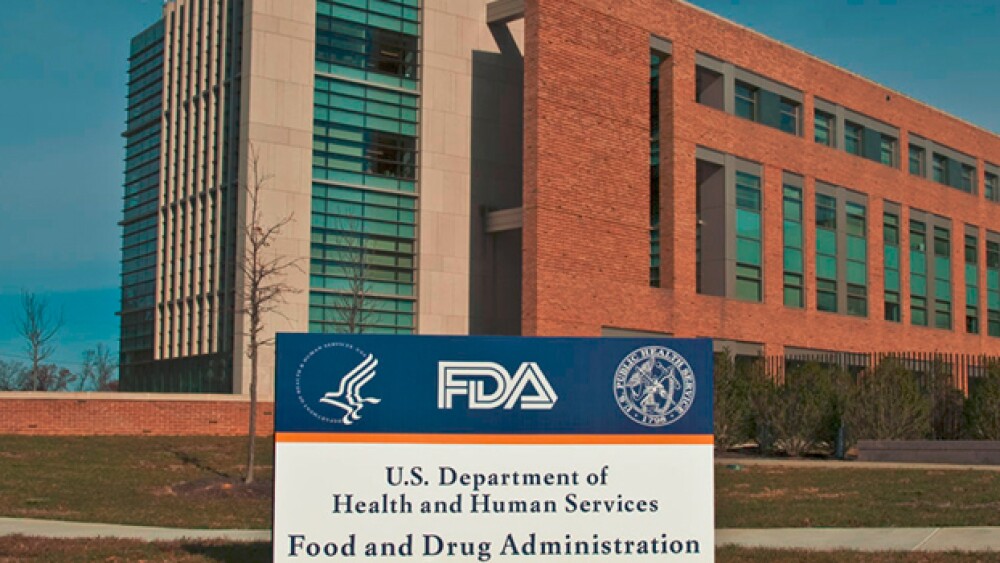As 2017 comes to a close, 40 drugs have been approved so far, with the record being in 2015, when 46 drugs were approved.
As 2017 comes to a close, the biopharma industry and the U.S. Food and Drug Administration (FDA) face a busy December. According to RTT News, 40 drugs have been approved so far, with the record being in 2015, when 46 drugs were approved. Nine companies are awaiting decisions in December.
With a PDUFA date of Dec. 2, Amgen is awaiting a decision on its supplemental Biologics License Application (sBLA) of Repatha to include the drug’s ability to cut the risk of major adverse cardiovascular events. The drug was initially approved to treat high cholesterol, but additional studies were required to prove that this actually resulted in fewer heart attacks, angina, stroke or related events.
The company is looking for the FDA to approve its BLA for MYL-1401O, a biosimilar for Roche’s Herceptin for breast cancer. The biosimilar was co-developed by Mylan and Biocon, Inc. and was given a unanimous thumbs-up from the FDA’s Oncologic Drugs Advisory Committee in July. The PDUFA date is Dec. 3.
Novo Nordisk is expecting the FDA to approve its once-weekly Semaglutide for type 2 diabetes on Dec. 5. The drug is a glucagon-like peptide-1 (GLP-1) receptor agonist, working with the same mechanism of Eli Lilly’s Trulicity. In a head-to-head trial of Semaglutide and Trulicity, Semaglutide had a better reduction in HbA1c and body weight compared to once-weekly Trulicity.
The FDA will make a decision on Aclaris’ New Drug Application for A-101 40 percent topical solution for seborrheic keratosis by Dec. 24. The compound is designed to penetrate the seborrheic keratosis (SK) lesion and cause oxidative damage, which can cause the SK cells to shed.
With a PDUFA date of Dec. 26, Agile’s Twirla is a low-dose combined hormonal contraceptive patch. It was rejected in 2013—the FDA asked Agile to run a new clinical trial and produce more information on the manufacturing process. As a result, Agile ran the SECURE Phase III trial on 2,032 healthy women at 102 sites in the U.S.
6. Valeant Pharmaceuticals International
Valeant’s Bausch + Lomb subsidiary is looking for FDA approval for Luminesse by Dec. 27. The drug is an over-the-counter eye drop for eye redness caused by minor eye irritation. Luminesse’s active ingredient is brimonidine tartrate. If approved, it will be the first over-the-counter product with brimonidine tartrate for eye redness.
The company’s Macrilen has a PDUFA date of Dec. 30. It is an orally-active ghrelin agonist for evaluating adult growth hormone deficiency. The FDA turned it down in 2014 because its pivotal trial didn’t meet its stated primary efficacy objective. The FDA required the company to run a new, confirmatory clinical trial to validate Macrilen for the evaluation of growth hormone deficiency in adults using the insulin tolerance test (ITT). The results of the confirmatory trial didn’t achieve equivalence to the ITT as a way of diagnosing AGHD in January 2017, but the company resubmitted the NDA in June.
Pfizer’s supplemental new drug application (sNDA) for Xeljanz 5 mg and Xeljanz XR 11 mg is expected this month. The drugs are for adults with active psoriatic arthritis. Xeljanz is an immediate release tablet taken twice daily, and Xeljanz XR is only taken once a day. They are both already on the market for adults with moderately to severely active rheumatoid arthritis. Pfizer also is looking for expanded approval of Bosulif to include first-line treatment for chronic phase Philadelphia chromosome-positive (Ph+) chronic myeloid leukemia (CML) this month. The drug is already approved for adults with Ph+ CML resistant to or intolerante to previous therapy.
9. Merck
Pfizer also has a hand in this one as well. The two companies have three New Drug Applications for Ertugliflozin for adults with Type 2 diabetes. They are looking for the FDA to approve Pfizer’s Ertugliflozin as a monotherapy as well as in fixed dose combinations with Merck’s Januvia and Metformin. The drug has shown, in clinical trials, that patients have statistically significant decreases in A1C over two to three months when dosed with Metformin or in an initial co-dosing with Januvia.





